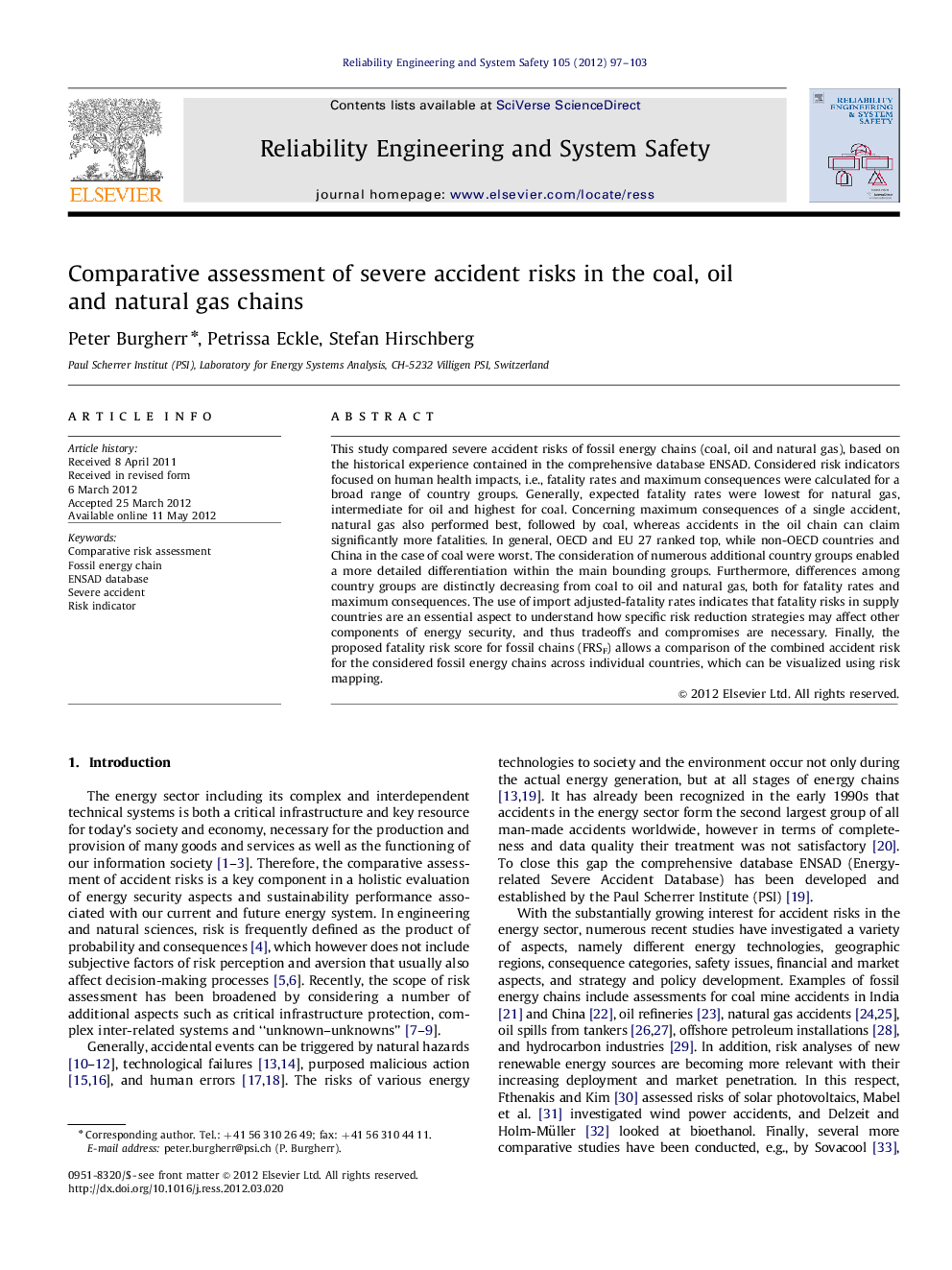| Article ID | Journal | Published Year | Pages | File Type |
|---|---|---|---|---|
| 807975 | Reliability Engineering & System Safety | 2012 | 7 Pages |
This study compared severe accident risks of fossil energy chains (coal, oil and natural gas), based on the historical experience contained in the comprehensive database ENSAD. Considered risk indicators focused on human health impacts, i.e., fatality rates and maximum consequences were calculated for a broad range of country groups. Generally, expected fatality rates were lowest for natural gas, intermediate for oil and highest for coal. Concerning maximum consequences of a single accident, natural gas also performed best, followed by coal, whereas accidents in the oil chain can claim significantly more fatalities. In general, OECD and EU 27 ranked top, while non-OECD countries and China in the case of coal were worst. The consideration of numerous additional country groups enabled a more detailed differentiation within the main bounding groups. Furthermore, differences among country groups are distinctly decreasing from coal to oil and natural gas, both for fatality rates and maximum consequences. The use of import adjusted-fatality rates indicates that fatality risks in supply countries are an essential aspect to understand how specific risk reduction strategies may affect other components of energy security, and thus tradeoffs and compromises are necessary. Finally, the proposed fatality risk score for fossil chains (FRSF) allows a comparison of the combined accident risk for the considered fossil energy chains across individual countries, which can be visualized using risk mapping.
► This study compares accident risks of coal oil and natural gas energy chains. ► Analysis of historical experience was based on the comprehensive database ENSAD. ► Several fatality-based risk indicators were calculated for various country groups. ► Natural gas had lower fatality rates and maximum consequences than oil and coal. ► OECD and EU 27 performed significantly better than non-OECD countries.
